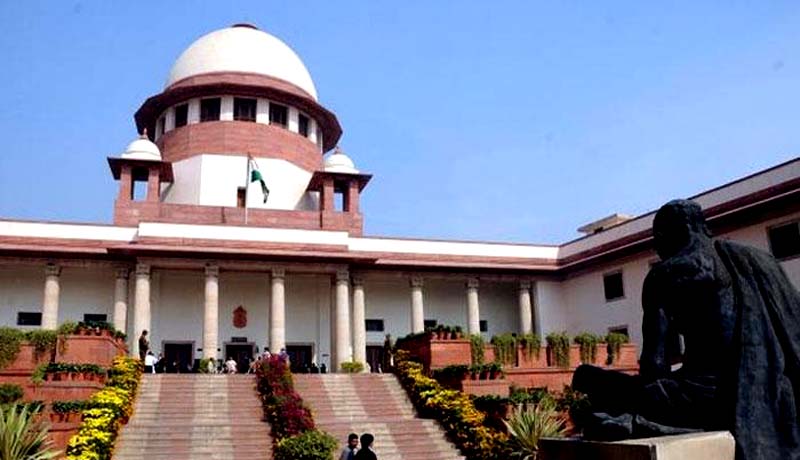Universities receiving direct Grants/Contributions from Governmental Sources only can Claim the benefit of Exemption u/s 10(23C)(iiiab) of the Income Tax Act: Supreme Court

High Court – Jurisdiction – Letters Rogatory – Supreme Court – taxscan
High Court – Jurisdiction – Letters Rogatory – Supreme Court – taxscan
A bench comprising of Justice Ranjan Gogoi and Justice Prafulla C. Pant of the Supreme Court on April 22nd held that the benefit of exemption u/s 10(23C)(iiiab) of the Income Tax Act, 1961 is available only to those Universities which are receiving direct grants and contributions from the Government sources. The appeal was filed by the Viswesaraya Technological University against the order of the Assistant Commissioner of Income Tax.
The assessee is a University constituted under the Visveswaraiah Technological University Act, 1994, exercises control over all Government and Private Engineering Colleges within Karnataka. For the Assessment Years 2004-2005 to 2009-2010 notices under Section 148 of the Income Tax Act, 1961were issued to the appellant – University –Assessee. Eventually, returns were filed for the Assessment Years in question declaring 'Nil' income and claiming exemption under Section 10(23C)(iiiab) of the Act. The Assessing Officer rejected the said returns alleging that the assessee is not entitled to such exemption. All the other authorities including the High Court expressed the same opinion. The matter was then brought before the Supreme Court.
The question, therefore, that arises in the present appeals is the entitlement of the appellant – University – Assessee to the exemption from payment of tax under the provisions of Section 10(23C)(iiiab) of the Act. The entitlement for exemption under Section 10(23C) (iiiab) is subject to two conditions. Firstly the educational institution or the university must be solely for the purpose of education and without any profit motive. Secondly, it must be wholly or substantially financed by the government. Both conditions will have to be satisfied before the exemption can be granted under the aforesaid provision of the Act.
While deciding the case, the Court found that during a short period of a decade i.e. from the year 1999 to 2010 the appellant University had generated a surplus of about Rs.500 crores, which has been collected/accumulated by realizing fees under different heads in consonance with the powers vested in the University under Section 23 of the VTU Act. The difference between the fees collected and the actual expenditure incurred for the purposes for which fees were collected is significant. In fact the expenditure incurred represents only a minuscule part of the fees collected. No remission, rebate or concession in the amount of fees charged under the different heads for the next Academic Year(s) had been granted to the students.
The Court further examined that whether the appellant University is wholly or substantially financed by the Government which is an additional requirement for claiming benefit under Section 10(23C)(iiiab) of the Income Tax Act, 1961.
Having regard to the text and the context of the provisionsof Section 10 (23c) (iiiab), 10 (23c) (iiiad) and 10 (23c) (vi) it will be reasonable to reach a conclusion that while Section 10 (23c) (iiiab) deals with Government Universities, Section 10 (23c) (iiiad) deals with small Universities having an annual“turnover” of less than Rupees One Crore (as prescribed by Rule 2 (BC) of the Income Tax Rules). On a similar note, it is possible to read Section 10 (23c) (vi) to be dealing with Private Universities whose gross receipts exceeds Rupees One Crore. Receipts by way of fee collection of different kinds continue to a major source of income for all Universities including Private Universities. Levy and collection of fees is invariably an exercise under the provisions of the Statute constituting the University. In such a situation, if collection of fees is to be understood to be amounting to funding by the Government merely because collection of such fees is empowered by the Statute, all such receipts by way of fees may become eligible to claim exemption under Section 10 (23c) (iiiab). Such a result which would virtually render the provisions of the other two Sub-sections nugatory cannot be understood to have been intended by the Legislature and must, therefore, be avoided.
Ranjan Gogoi. J. observed that “funds received from the Government contemplated under Section 10(23c)(iiiab) of the Act must be direct grants/contributionsfrom governmental sources and not fees collected under the statute”.
In the light of the above interpretations, the Court reached to a conclusion that the appellant University is University does not satisfy the second requirement spelt out by Section 10 (23c) (iiiab) of the Act. The appellant University is neither directly nor even substantially financed by the Government so as to be entitled to exemption from payment of tax under the Act.
Read the full text of the Judgment below.
[googleapps domain="drive" dir="file/d/0B3j3oXdY53gVQUcwaGllMHB5OG8/preview" query="" width="640" height="480" /]

